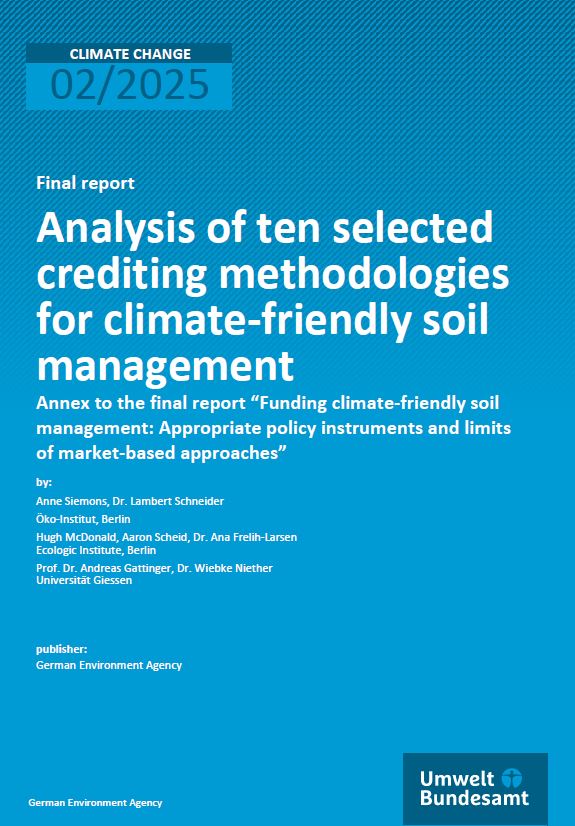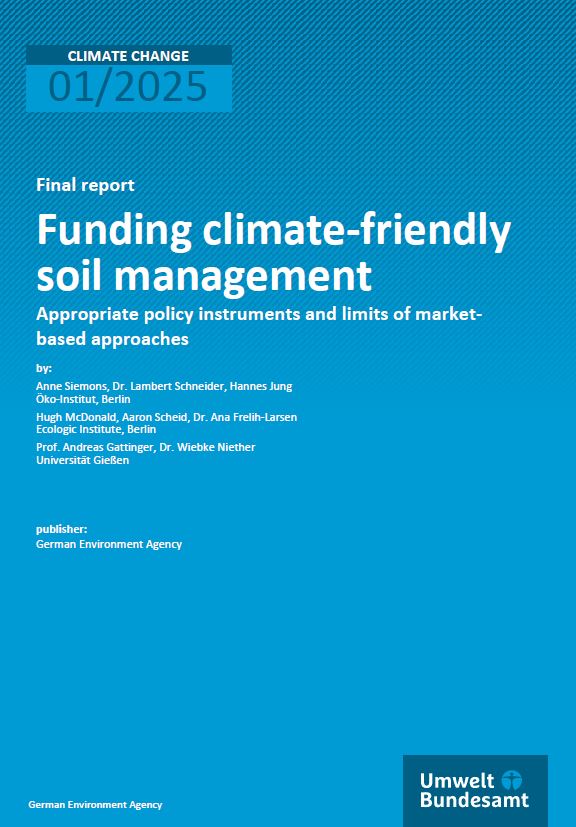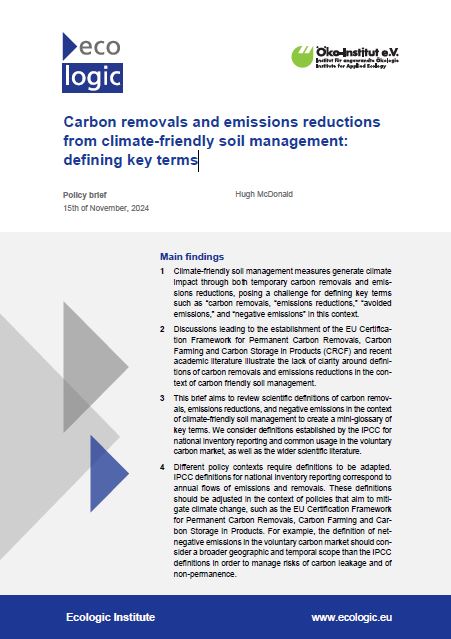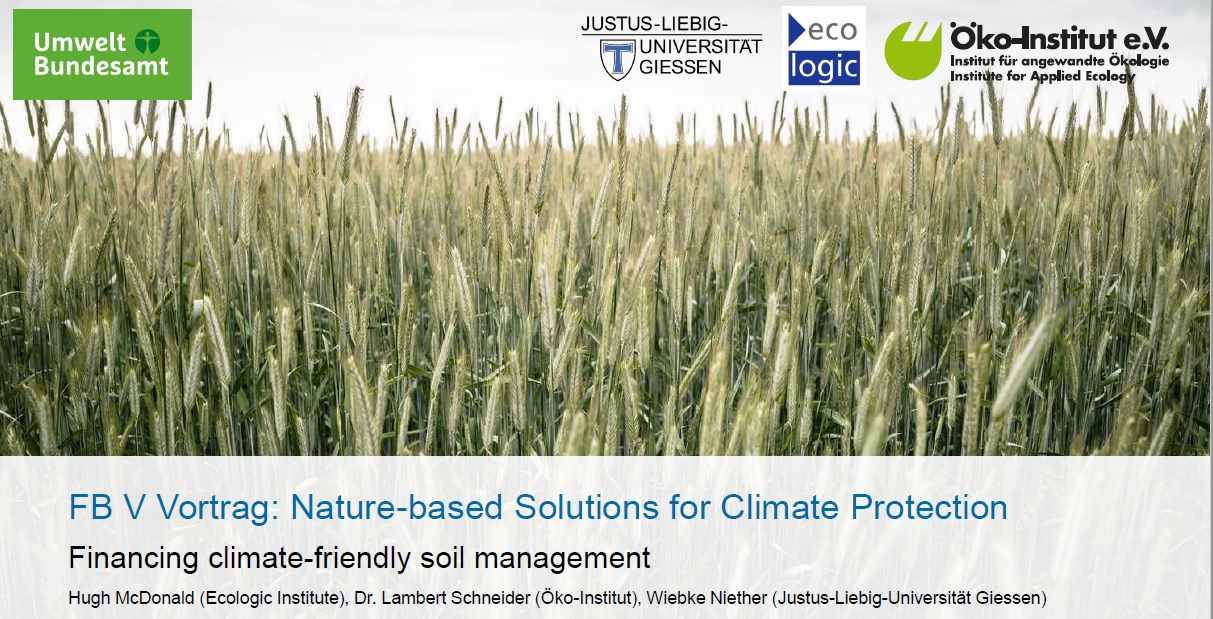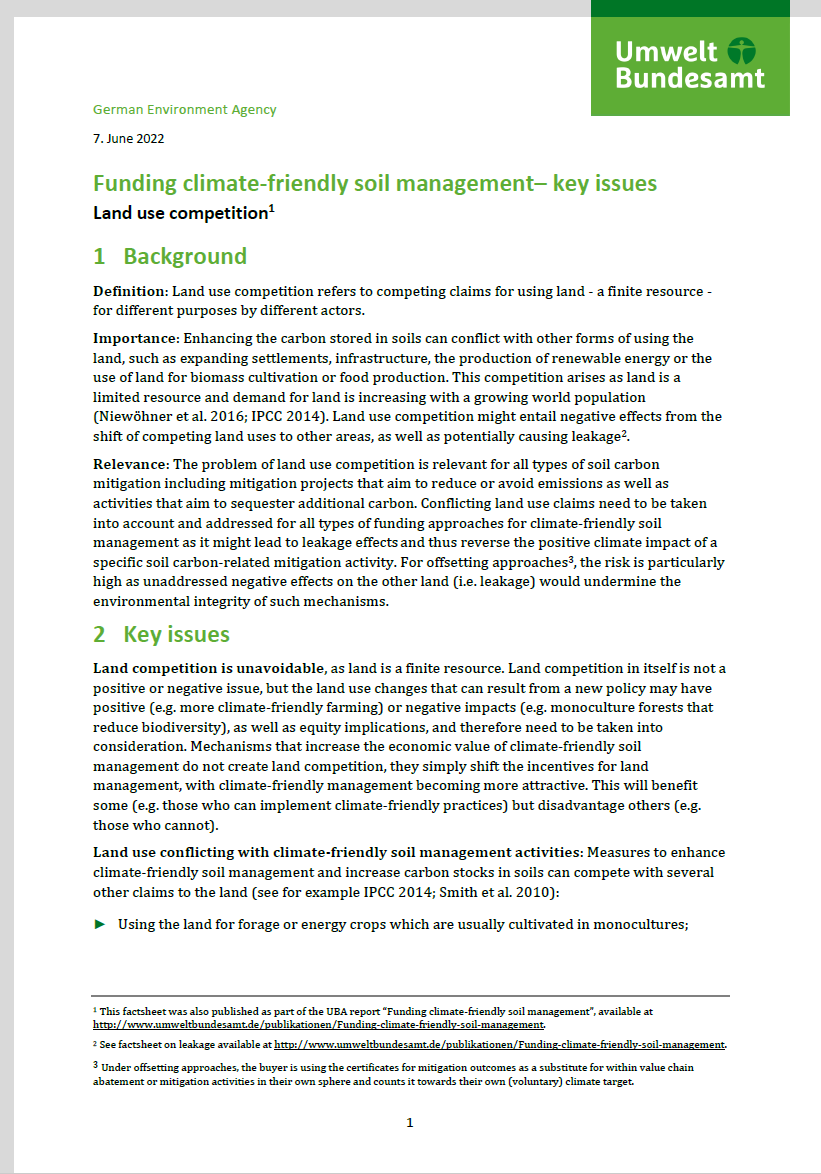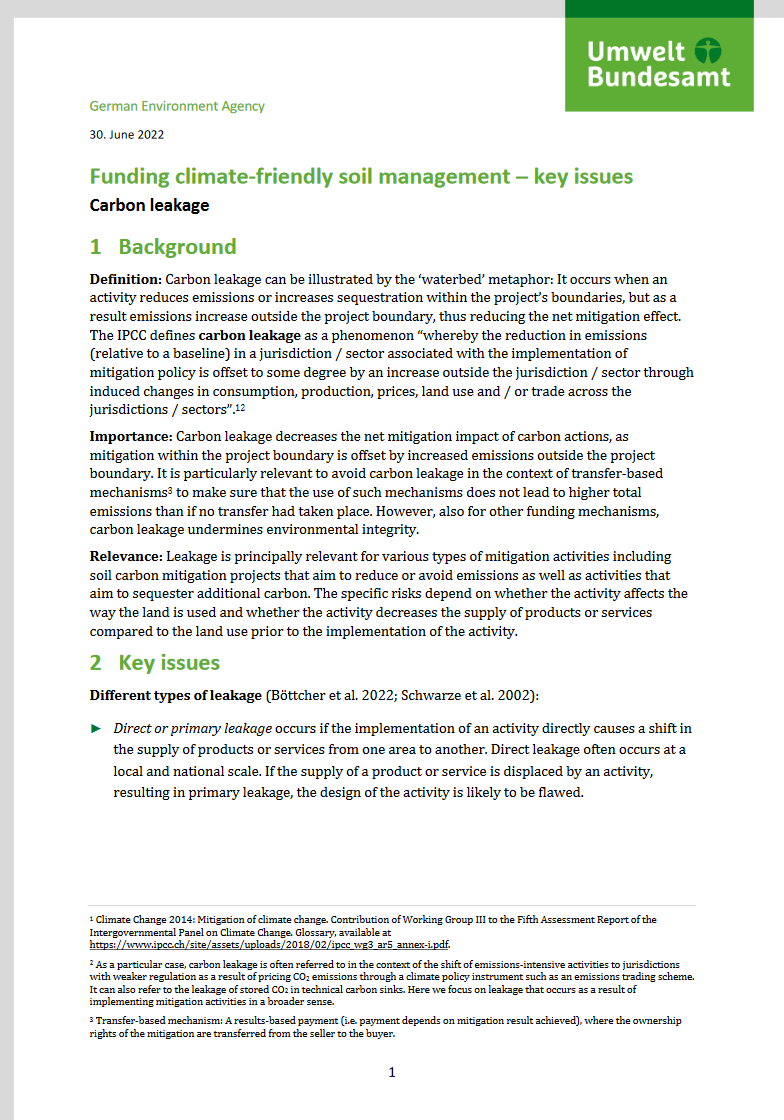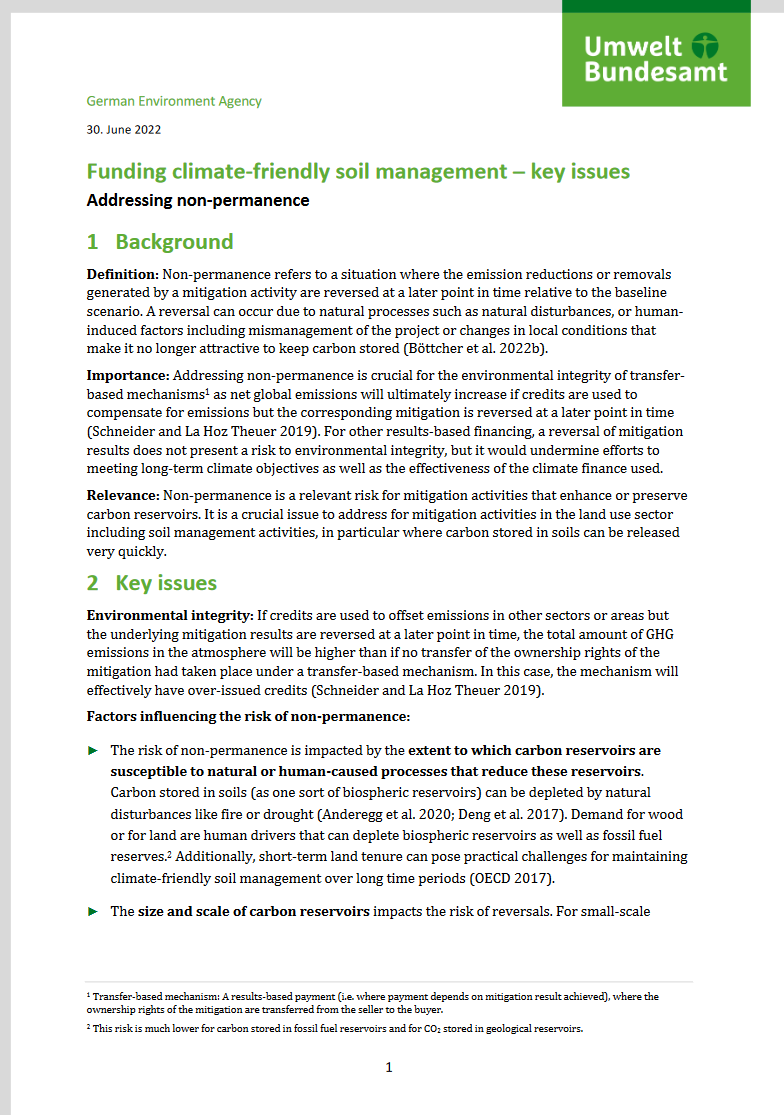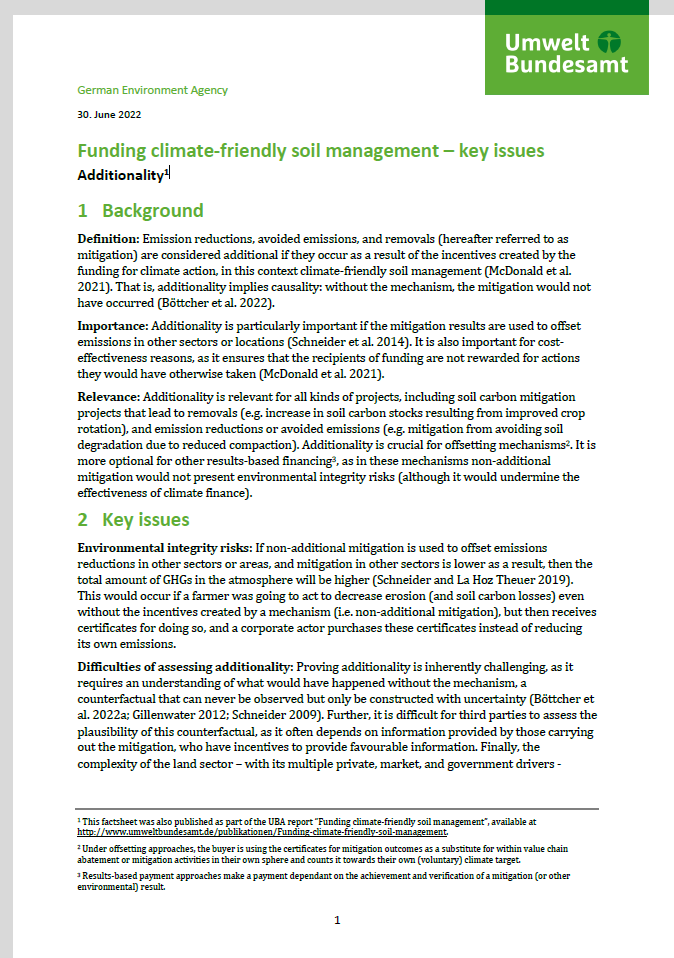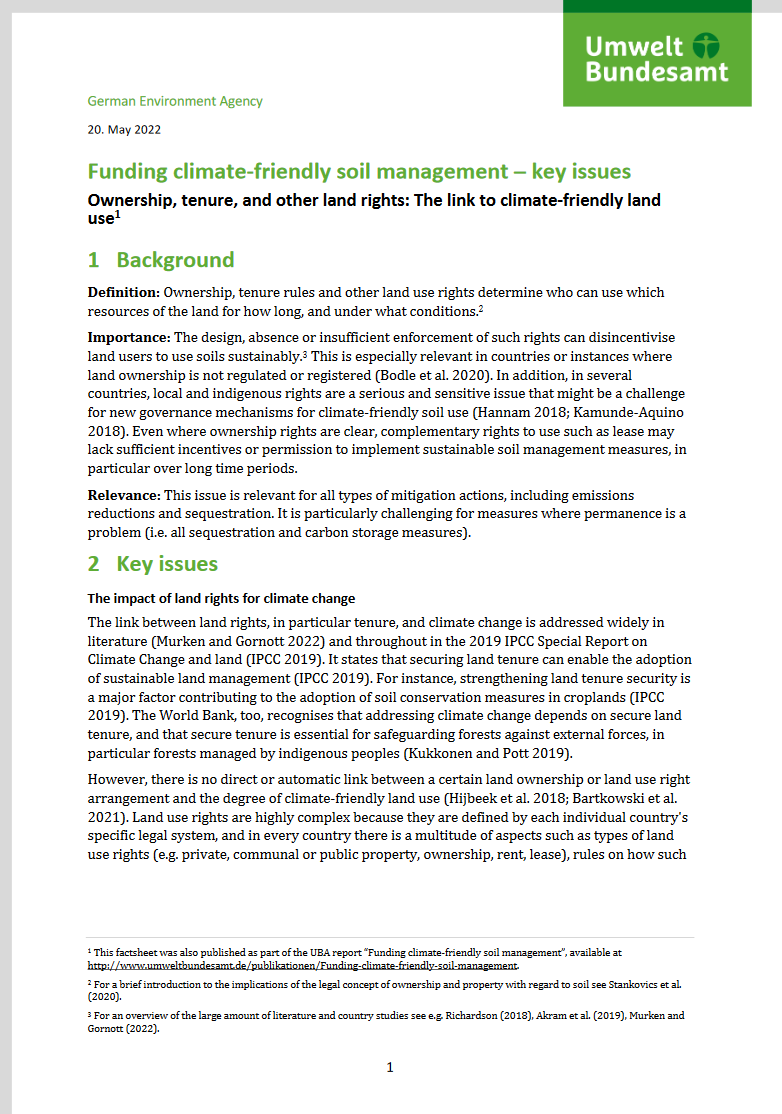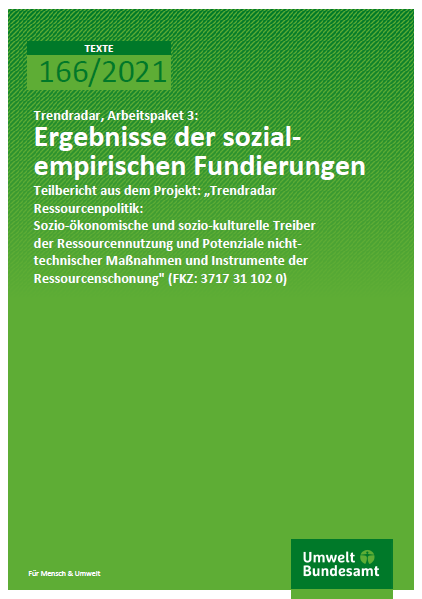Nature-based Solutions and Global Climate Protection
Assessment of their global mitigation potential and recommendations for international climate policy
- Publication
- Citation
- Judith Reise, Anne Siemons, Hannes Böttcher, Anke Herold, Cristina Urrutia, Lambert Schneider, Ewa Iwaszuk, Hugh McDonald, Ana Frelih-Larsen, Laurens Duin, McKenna Davis 2022: Nature-Based Solutions and Global Climate Protection. Assessment of their global mitigation potential and recommendations for international climate policy. Climate Change 01/2022. German Environment Agency, Dessau-Roßlau.
Nature-based solutions (NBS) are playing an increasingly prominent part in discussions of global climate change mitigation. This study, for the German Environment Agency (UBA), has critically examined the potential impact of NBS. The results show that the potential of NBS to mitigate emissions is probably overestimated in the literature. Nevertheless, NBS can deliver various ecological and social benefits for humans and the environment and should be promoted actively.
Nature-based solutions are locally appropriate, adaptive measures to conserve, sustainably manage or restore ecosystems, such as reforestation, restoration of peatlands, agroforestry or coastal wetland protection. In order not to rely on an overly optimistic assessment of their role as a climate mitigation option, it is crucial to critically assess the mitigation potential associated with NBS. A number of studies have put forward estimates of the climate change mitigation potential of NBS or land use measures in a broader sense on a global, regional or ecosystem-specific scale. However, there are differences in the methodologies and assumptions of these studies, which lead to considerably different estimates.
This paper critically assesses the global mitigation potential of NBS as provided in existing literature to derive recommendations for international climate policy. To do so, it first compares and evaluates different understandings of NBS in order to highlight key characteristics of NBS and propose a working definition to inform the scope of the study. The definition allows to clearly differentiate between NBS and measures that may use nature or natural processes but are not qualified as NBS in light of scientific discourse (such as e.g. biochar or BECCS).
The study then provides a critical assessment of global mitigation potentials of NBS in forests, croplands, grasslands, terrestrial and coastal wetlands, and settlements in order to get a sound understanding of a plausible contribution of NBS towards long-term climate targets. It concludes that the NBS potentials reported in the scientific literature probably overestimate the realistic potential of NBS for climate change mitigation. Nevertheless, the uncertainties associated with quantifying the mitigation effects of NBS should not be used as an argument against their implementation. In addition to their mitigation effect, NBS deliver a range of benefits for people and the environment and should be promoted actively.
At the same time, the implementation of emissions trading activities under Article 6 of the Paris Agreement must take the specific risks associated with NBS into account. Social and environmental safeguards must be introduced when developing procedures or support schemes to advance NBS. To promote synergies, consistency with work under other international policy frameworks such as the Rio Convention on Biological Diversity is needed.
